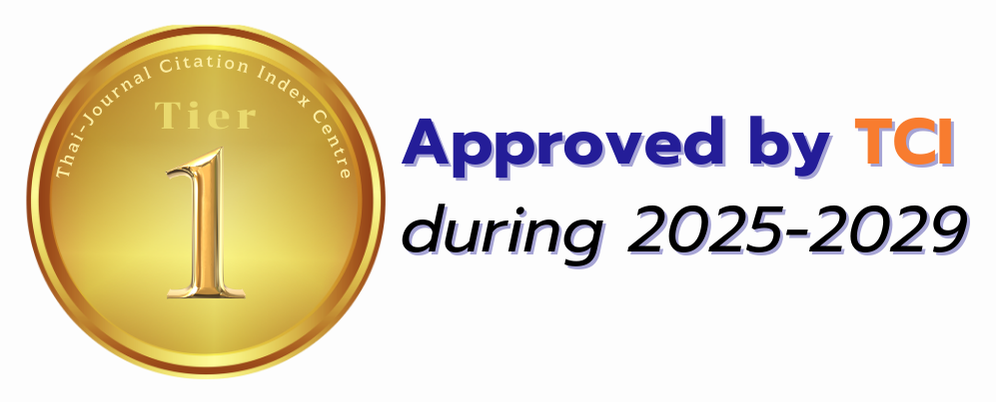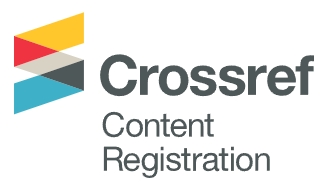Effect of betaine supplementation on immunity, energy, and lipid metabolites of growing Murrah buffalo calves
DOI:
https://doi.org/10.56825/bufbu.2024.4334578Keywords:
Bubalus bubalis, buffaloes, total immunoglobulin, total antioxidant activity, non-esterifies fatty acid, betaine, buffalo calvesAbstract
This study aimed to observe the effect of betaine (BET) supplementation on the growth, immunity, energy, and lipid metabolites of Murrah buffalo calves. Twenty-one Murrah buffalo calves were taken and randomly distributed into three groups (n=3) after blocking by body weight (98.70±1.31 kg) and age (8.12±0.55 months). The feeding regimen was the same in all the groups except that the Treatment groups were supplemented additionally with 0.0 (B0), 7.0 (B7), and 14.0 (B14) g/d BET in three respective groups for 90 d of the experiment period. Total leukocytes (TLC), neutrophils, lymphocytes, total immunoglobulin (TIG), total antioxidant activity (TAA), energy, and lipid metabolites were observed at fortnightly intervals during 90 d experimental periods. Adding BET up to 14 g/d did not exert (P>0.05) any effect on total leukocytes and neutrophils concentration. Lymphocytes, TIG, and TAA were increased significantly (P<0.05) in BET received groups either dose 7 or 14 g/d than in the control. No effect of dietary addition of BET was observed on the glucose, non-esterifies fatty acid (NEFA), total cholesterol (TCH), and high-density lipoprotein cholesterol (HDL-CH). The results of our study indicate that supplemental BET may play a role in regulating the immunity of growing Murrah buffalo calves.
Downloads
Metrics
References
AOAC. 1995. Official Methods of Analysis, 18th ed. Association of Official Analytical Chemists, Washington, DC, USA.
Benzie, E.F.I. and J.J. Strain. 1999. Ferric reducing/antioxidant power assay: Direct measure of total antioxidant activity of biological fluids and modified version for simultaneous measurement of total antioxidant power and ascorbic acid concentration. Method. Enzymol., 209: 15-27. DOI: 10.1016/s0076-6879(99)99005-5
Bertolo, R.F. and L.E. McBreairty. 2013. The nutritional burden of methylation reactions. Curr. Opin. Clin. Nutr., 16(1): 102-108. DOI: 10.1097/MCO.0b013e32835ad2ee
Chand, N., S. Naz, H. Maris, R.U. Khan, S. Khan and M.S. Qureshi. 2017. Effect of betaine supplementation on the performance and immune response of heat stressed broilers. Pak. J. Zool., 49: 1857-1862. DOI: 10.17582/journal.pjz/2017.49.5.1857.1862
Cholewa, J.M., L. Guimarães-Ferreira and N.E. Zanchi. 2014. Effects of betaine on performance and body composition: a review of recent findings and potential mechanisms. Amino Acids, 46(8): 1785-1793. DOI: 10.1007/s00726-014-1748-5Di
Giacomo, K., S. Simpson, B.J. Leury and F.R. Dunshea. 2016. Dietary betaine impacts the physiological responses to moderate heat conditions in a dose dependent manner in sheep. Animals, 6(9): 51. DOI: 10.3390/ani6090051
Feldman, B.F., J.G. Zink and N.C. Jain. 2000. Schalm’s Veterinary Hematology, 5th ed. Lippincott Williams and Wilkins, Philadelphia, USA. p1344.
Klasing, K.C., K.L. Adler, J.C. Remus and C.C. Calvert. 2002. Dietary betaine increases intraepithelial lymphocytes in the duodenum of coccidia-infected chicks and increases functional properties of phagocytes. J. Nutr., 132(8): 2274-2282. DOI: 10.1093/jn/132.8.2274
Lu, X., J. Wang, H. Wang and S. Qu. 2008. Effects of betaine on body weight and biochemical index in obese rats fed high-fat diet. Acta Nutrim. Sin., 30(3): 311-312, 315.
McEvan, A.D. and E.W. Fisher. 1970. A turbidity test for the estimation of immune globulin levels in neonatal calf serum. Clin. Chim. Acta., 27(1): 155-163. DOI: 10.1016/0009-8981(70)90390-6
Sakomura, N.K., N.A.A. Barbosa, E.P. DaSilva, F.A. Longo, I.M. Kawauchi and J.B.K. Fernandes. 2013. Effect of betaine supplementation in diets for broiler chickens on thermoneutral environment. Braz. J. Poult. Sci., 8: 336-341.
Nasiroleslami, M., M. Torki, A.A. Saki and A.R. Abdolmohammadi. 2018. Effects of dietary guanidinoacetic acid and betaine supplementation on performance, blood biochemical parameters and antioxidant status of broilers subjected to cold stress. J. Appl. Anim. Res., 46(1): 1016-1022. DOI: 10.1080/09712119.2018.1450751
Nofal, M.E., A.G. Magda, S.M.M. Mousa, M.M.Y. Doaa and A.M.A. Bealsh. 2015. Effect of dietary betaine supplementation on productive, physiological, and immunological performance and carcass characteristic of growing developed chicks under the condition of heat stress. Egyptian Poultry Science Journal, 35: 237-259.
NRC. 2001. Nutrient Requirements of Dairy Cattle, 7th ed. The National Academies Press, Washington, DC., USA.
Park, J.H. and I.H. Kim. 2019. The effects of betaine supplementation in diets containing different levels of crude protein and methionine on the growth performance, blood components, total tract nutrient digestibility, excreta noxious gas emission, and meat quality of the broiler chickens. Poultry Sci., 98(12): 6808-6815. DOI: 10.3382/ps/pez412
Salamat, H.A. and H.A. Ghasemi. 2016. Alleviation of chronic heat stress in broilers by dietary supplementation of betaine and turmeric rhizome powder: dynamics of performance, leukocyte profile, humoral immunity, and antioxidant status. Trop. Anim. Health Pro., 48(1): 181-188. DOI: 10.1007/s11250-015-0941-1
Schalm, O.W. and N.C. Jain. 1986. Schalm’s Veterinary Haematology, 4th ed. Lea and Febriger, Philadelphia, USA.
Shah, A.M., J. Ma, Z. Wang, H. Zou, R. Hu and Q. Peng. 2020. Betaine supplementation improves the production performance, rumen fermentation, and antioxidant profile of dairy cows in heat stress. Animals, 10(4): 634. DOI: 10.3390/ani10040634
Shipe, W.F., G.F. Senyk and K.B. Fountain. 1980. Modified copper soap solvent extraction method for measuring free fatty acids in milk. J. Dairy Sci., 63(2): 193-198. DOI: 10.3168/jds.S0022-0302(80)82913-4
Van Soest, P.J., J.B. Robertson and B.A. Lewis. 1991. Methods for dietary fiber, neutral detergent fiber, and nonstarch polysaccharides in relation to animal nutrition. J. Dairy Sci., 74(10): 3583-3597. DOI: 10.3168/jds.S0022-0302(91)78551-2
Van, L.L., M.T. Tint, I.M. Aris, P.L. Quah, M.V. Fortier, Y.S. Lee, F.K. Yap, S.M. Saw. K.M. Godfrey and P.D. Gluckman. 2016. Prospective associations of maternal betaine status with offspring weight and body composition at birth: The Growing Up in Singapore Towards Healthy Outcomes (GUSTO) cohort study. Am. J. Clin. Nutr., 104(5): 1327-1333. DOI: 10.3945/ajcn.116.138818
Wang, B., C. Wang, R. Guan, K. Shi, Z. Weim, J. Liu and H. Liu. 2019. Effects of dietary rumen-protected betaine supplementation on performance of postpartum dairy cows and immunity of newborn calves. Animals, 9(4): 167. DOI: 10.3390/ani9040167
Wang, C., Q. Liu, W. Yang, J. Wu, W. Zhang, P. Zhang, K. Dong and Y. Huang. 2010. Effects of betaine supplementation on rumen fermentation, lactation performance, feed digestibilities and plasma characteristics in dairy cows. J. Agric. Sci., 148(4): 487-495. DOI: 10.1017/S0021859610000328
Zeisel, S.H., M.H. Mar, J.C. Howe and J.M. Holden. 2003. Concentrations of choline-containing compounds and betaine in common foods. J. Nutr., 133(5): 1302-1307. DOI: 10.1093/jn/133.5.1302
Zhang, L., S.J. Ying, W.J. An, H. Lian, G.B. Zhou and Z.Y. Han. 2014. Effects of dietary betaine supplementation subjected to heat stress on milk performances and physiology indices in dairy cow. Genet. Mol. Res., 13(3): 7577-7586. DOI: 10.4238/2014.September.12.25
Zhou, R.F., X.L. Chen, Z.G. Zhou, Y.J. Zhang, Q.Y. Lan, G.C. Liao, Y. Chen and H. Zhu. 2017. Higher dietary intakes of choline and betaine are associated with a lower risk of primary liver cancer: A case-control study. Sci. Rep., 7(1): 679. DOI: 10.1038/s41598-017-00773-w









.png)








